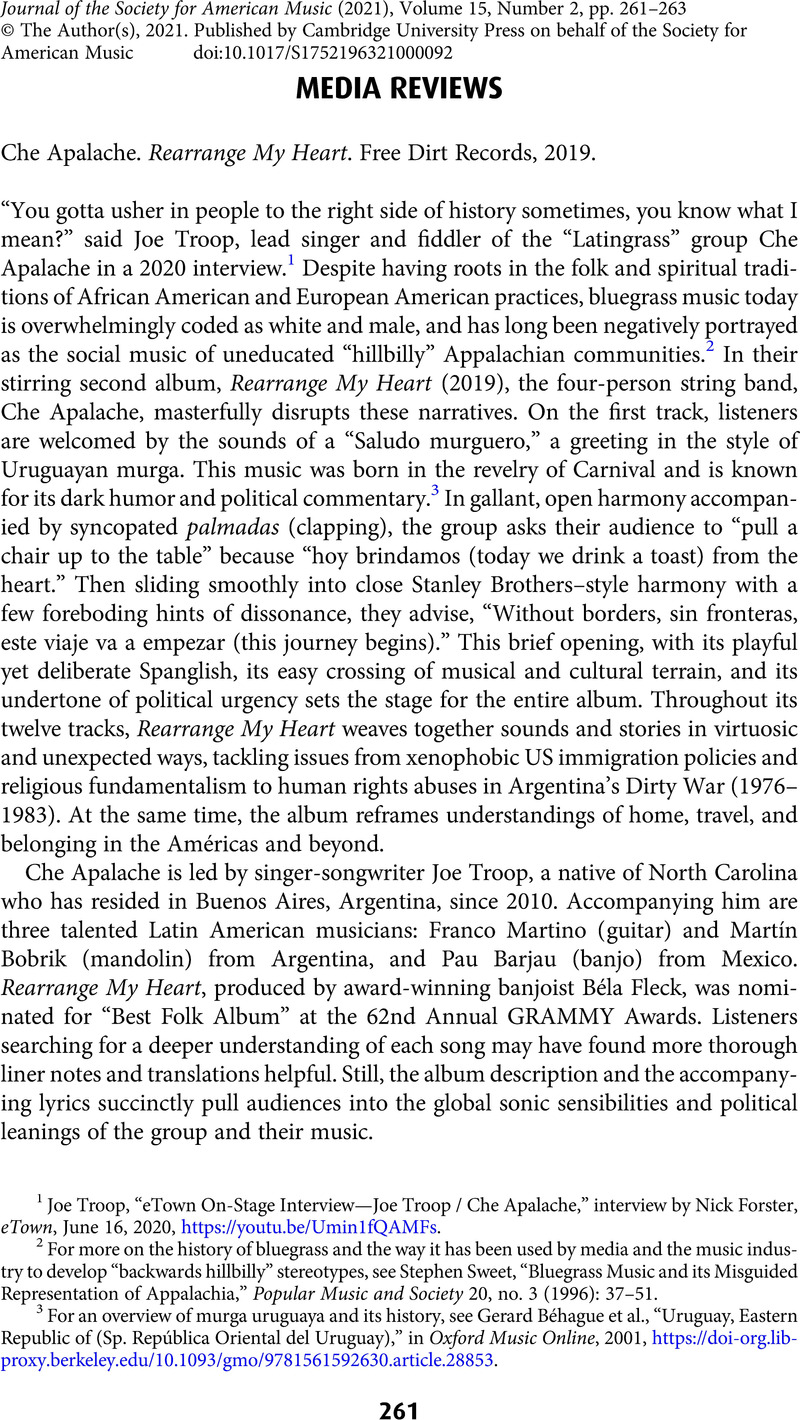No CrossRef data available.
Published online by Cambridge University Press: 04 May 2021

1 Joe Troop, “eTown On-Stage Interview—Joe Troop / Che Apalache,” interview by Nick Forster, eTown, June 16, 2020, https://youtu.be/Umin1fQAMFs.
2 For more on the history of bluegrass and the way it has been used by media and the music industry to develop “backwards hillbilly” stereotypes, see Sweet, Stephen, “Bluegrass Music and its Misguided Representation of Appalachia,” Popular Music and Society 20, no. 3 (1996): 37–51CrossRefGoogle Scholar.
3 For an overview of murga uruguaya and its history, see Gerard Béhague et al., “Uruguay, Eastern Republic of (Sp. República Oriental del Uruguay),” in Oxford Music Online, 2001, https://doi-org.libproxy.berkeley.edu/10.1093/gmo/9781561592630.article.28853.
4 Joe Troop, “Che Apalache's Joe Troop on Being Out in the Bluegrass Community: ‘It's Very Much Taboo,’” interview by Alex Blynn, Billboard, August 6, 2019, https://www.billboard.com/articles/news/pride/8526218/che-apalache-joe-troop-interview-queer-in-bluegrass.
5 Troop, “eTown On-Stage Interview.”
6 Troop, “eTown On-Stage Interview.”
7 “Porteño” (or feminine “porteña”) refers to the inhabitants of the port city of Buenos Aires.